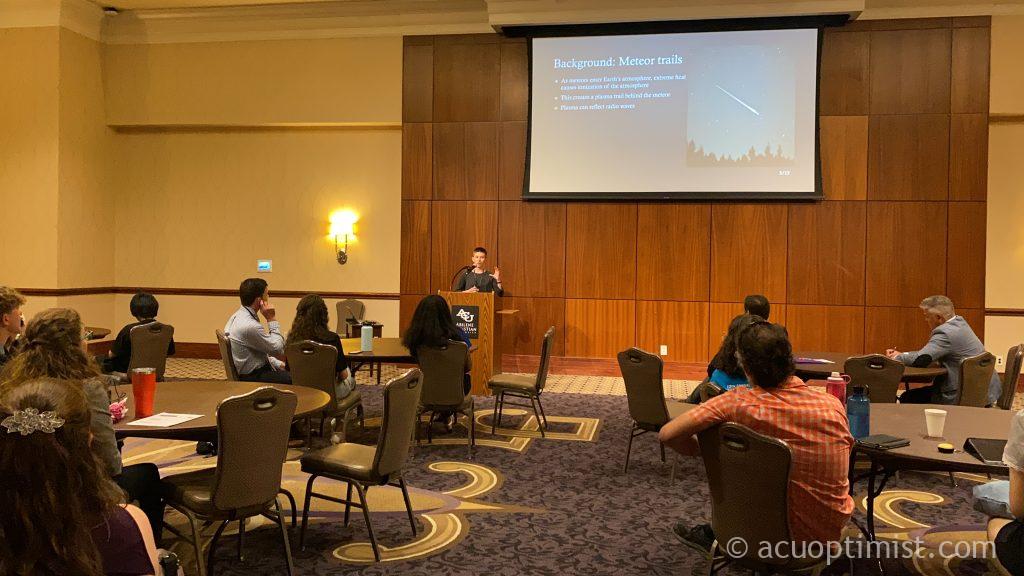The Undergraduate Research Festival returned to campus on April 12 in the Hunter Welcome Center, allowing students to present scholarly research in a normal fashion for the first time since the start of COVID-19.
Any undergrad student who submits a research project can enter into the festival to present it in front of their peers and a panel of judges. The festival gives students a glimpse into the professional world.
“They learn what it is to be a professional. Whenever you do these kinds of presentation events, you are held to the standards that you are going to be held to later in life,” Josh Brokaw said, faculty director of undergraduate research creativity and innovation.
This year was the first year the festival operated normally since the COVID-19 pandemic.
“If you go back to 2019, it is pretty similar to what happened then, but most of us did not get a chance to even see that. We have gone out of our way to intentionally say we value all of the scholarly activity at ACU,” Brokaw said.
Students can present their research orally or visually with a poster. They are judged on their presentation and deliverance of their study.
Nathan Wade, junior information systems major from Cullowhee, North Carolina, did his research on something all students can relate to, two-factor authentication.
“We did the emotional impact of multi-factor authentication on university students,” Wade said. “What we found was fifty-five out of four-hundred-sixty-five students were extremely frustrated and saw it as an extra step in the login process. I think this can really help IT departments in the future, for other schools especially, it can help them roll out MFA in a more successful way than ACU did.”
Abigail Cortinas, a senior biochemistry major from San Antonio, conducted her research on COVID-19.
“Our research has been sequencing different strands of COVID-19 we collected from the spring of 2021. The conclusion was really just more of a confirmation of what the CDC and other information has told us, that the more stabilized strands do have a tendency to take over the population,” Cortinas said. “It is really easy to get stuck in the monotony of doing the procedure every day, but when you get to present at things like this, you get to actually recognize the story that you have built with the research you put together.”

